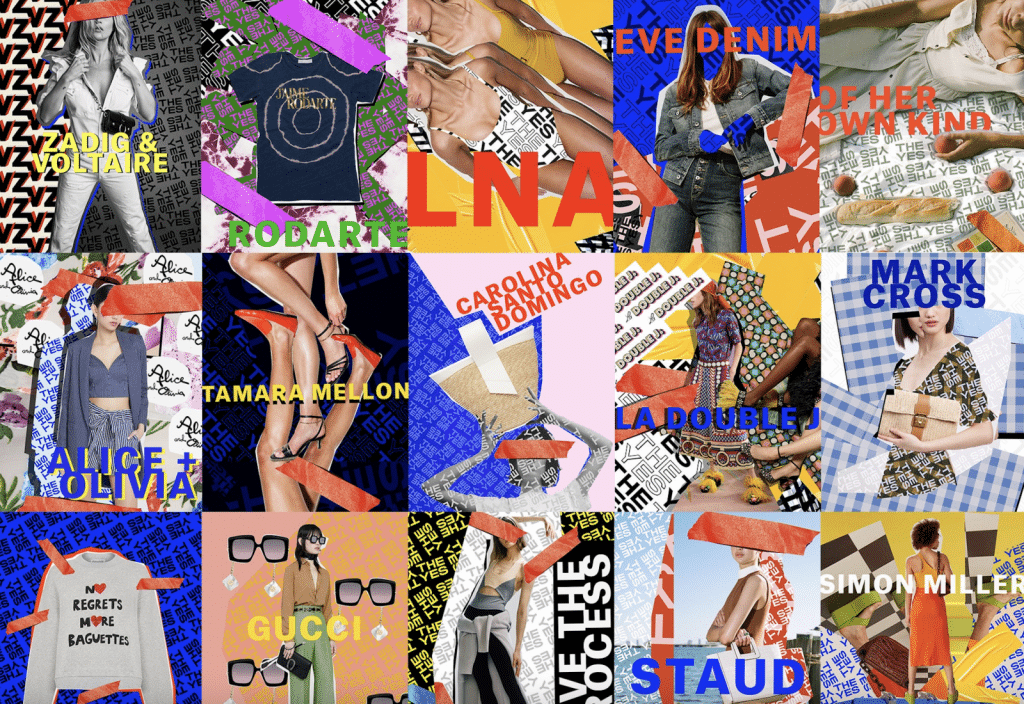A judgment in Chanel’s case against What Goes Around Comes Around could have significant implications for the resale market. On the heels of a jury trial and a subsequent bench trial on equitable remedies, Judge Louis Stanton issued a final judgment last month, complete with a permanent injunction that places strict restrictions on reseller What Goes Around Comes Around (“WGACA”)’s use of Chanel’s trademarks. The injunction marks a significant win for Chanel and its bid to maintain control over the distribution and marketing of products bearing its name and other trademarks. It also raises questions about the balance between brand protection and the ability of parties to resell genuine products.
The Background in Brief: The final judgment issued by Judge Louis Stanton of the U.S. District Court for the Southern District of New York on February 26 formalizes the jury’s findings and imposes a permanent injunction restricting WGACA from using Chanel’s trademarks in a way that falsely suggests an affiliation with Chanel; displaying Chanel’s marketing materials, advertisements, or props in stores or online; using Chanel-related hashtags; selling unauthorized Chanel-branded items, including altered products; making authenticity claims about Chanel products without having independent authentication records; and selling repaired or refurbished Chanel products without clearly disclosing their condition.
Beyond that, the injunction requires WGACA to display a clear disclaimer in connection with Chanel goods, stating that it “IS NOT AFFILIATED WITH CHANEL AND HAS NOT BEEN AUTHORIZED BY CHANEL TO SELL THIS ITEM.”
A Meaningful Win for Chanel
Primarily, the injunction limits how WGACA can use Chanel’s trademarks, with the court taking an arguably narrow approach to nominative fair use, which permits a party (including resellers) to use a trademark or brand name to describe another party’s product as long as that use is not misleading to consumers. In other words, while resale is, on its face, perfectly legal, “the right to resell a genuine product does not give the re-seller the right to use the brand owner’s trademarks and other intellectual property in a way that is likely to lead consumers to believe that the brand owner has endorsed, or is somehow associated with the reseller,” Kelley Drye previously noted.
“A reseller may state that it is reselling a Chanel bag, if the bag is a genuine, unaltered, Chanel bag. However, making excessive use of [Chanel] trademarks or other indicia associated with the brand to promote a resale business is more than the law allows because it is likely to cause consumers to falsely believe that the brand is endorsing the resale.”
As for what such “excessive” use – or use that falls outside of the scope of nominative fair use – looks like, the court’s ruling suggests that WGACA using Chanel’s trademarks (the CHANEL word mark, CC monogram, etc.) in connection with advertising, social media hashtags (e.g., #chanel), and certain display methods (such as props resembling Chanel items), and other elements of its branding in photos, for instance, exceeds the bounds of fair use. This broad limitation will impact WGACA, which has traditionally featured marketing-centric images of Chanel products and related branding on its website and social media accounts.
In terms of authentication claims, the injunction mandates that WGACA refrain from “certifying, guaranteeing, or otherwise making any advertising claims, representations, or statements asserting the genuineness of any CHANEL-branded items advertised or sold by WGACA for which WGACA has no records of its own authentication to support its.” This places a meaningful burden on WGACA and potentially other resellers of Chanel products to maintain – and document – thorough authentication processes.
At the same time, the ruling also requires WGACA to include disclaimers and serial numbers in its product listings, placing additional compliance obligations on resellers, particularly if a reseller is selling an item that lacks its original paperwork and/or serial number.
The Bigger Picture for Brands, Resellers
While the final judgment and injunction are the result of a district court level decision subject to appeal and are limited in impact to the defendants in this case (WGACA and co.), the effects could still be significant in several ways. First, the court’s judgment grants Chanel significant influence over how its brand appears in the resale market, even when genuine products are being offered up and sold. This could embolden Chanel to take further action against other resale companies that are selling infringing or otherwise unauthorized goods and/or making excessive use of its trademarks.
It may also prompt other luxury brands to engage in stricter enforcement with regard to the secondary market. And if similar rulings follow, resale companies may face greater legal uncertainty and more frequent challenges in connection with their marketing and sale of pre-owned luxury goods.
More broadly, the terms of the court’s judgment could voluntarily be adopted by companies in the secondary market, namely by resale companies that aim to avoid legal run-ins with Chanel. As such, the restrictions on the use of Chanel’s marks could make it more difficult for resellers to market products in ways that have become common relatively across the secondary market, which includes using brands’ names, as well as using product images, ad campaigns, and runway imagery in a marketing capacity (as opposed to a purely descriptive one).
Importantly, the potential limitation on authentication language by resellers in the event that they have not or cannot verify the nature of the products they are offering up (and that could be tricky since most luxury brands do not share authentication information with resellers) is important from a marketing perspective. After all, authenticity-centric warranties are a critical tool that resale companies use to garner traction and trust among consumers.
And still yet, there are likely to be higher costs for resellers on the compliance front should the terms of the court’s injunction spread beyond just WGACA. In the event that resale companies need to have independent authentication records for every product they offer up for sale, that will certainly add to operational costs in the resale segment, which has historically struggled to produce profitable businesses.
THE BOTTOM LINE: The court’s decision gives increased power to trademark-owners looking to exercise more control over how and under what conditions their products are sold even after their initial sale. Depending on whether similar decisions follow and whether resale entities opt to treat elements of the injunction in the Chanel case as guidance to avoid legal challenges of their own, the ruling could reshape the resale landscape, pushing resale companies to adopt new legal strategies, stricter compliance measures, or even brand partnerships to continue selling pre-owned luxury goods without legal risk.
The case is Chanel, Inc. v. What Goes Around Comes Around, LLC, et al., 1:18-cv-02253 (SDNY).














